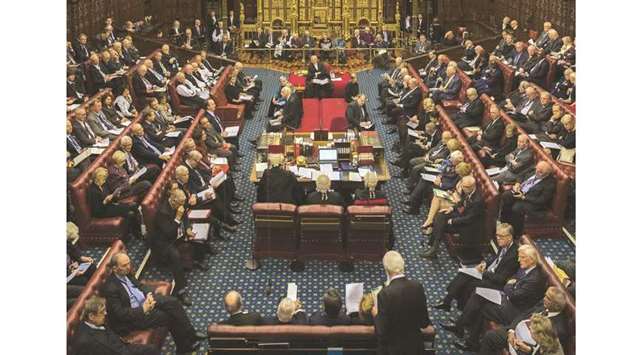The upper parliamentary chamber is thought to be the largest of its kind in any democratic country, its current membership of 824 dwarfing that of the 650-seat, elected House of Commons.
Peers unanimously agreed last year to reduce their size, appointing a cross-party committee which proposed yesterday that the membership be capped at 600. Noting that the Lords is unique in having members who serve for life, the committee also proposed that newly appointed peers serve only 15 years.
Since a major overhaul in 1999, when all but 92 hereditary peers were excluded, further attempts to bring legislative change to the Lords have failed, and the current government has no such plans.
As a result, the committee proposed voluntary changes, asking political parties to agree to persuade existing members to retire at a faster rate over the next decade to cut numbers.
They would also have to agree to limit political appointments in the future to keep the numbers down.
Commons Speaker John Bercow said in September that the size of the Lords was “patently absurd” and should be halved.
New questions have been raised over the role of the Lords in recent weeks after The Daily Mirror reported that 115 peers claimed £1.3mn between them in the past year, despite not speaking once in the chamber.
Most members — barring those in ministerial or parliamentary office — do not receive a salary but can claim travel expenses and a tax-free flat rate for attendance of either £150 or £300.
They decide which rate.

